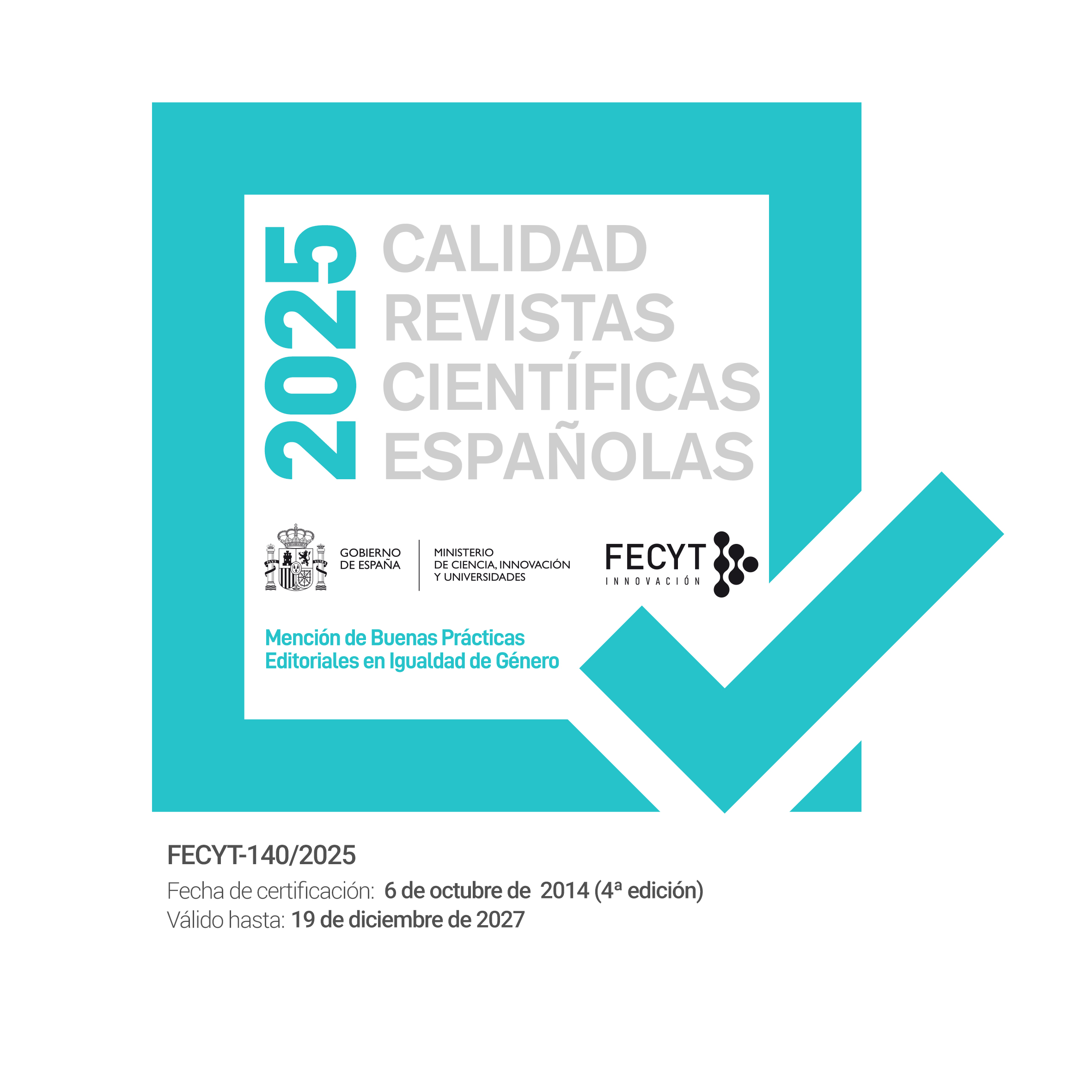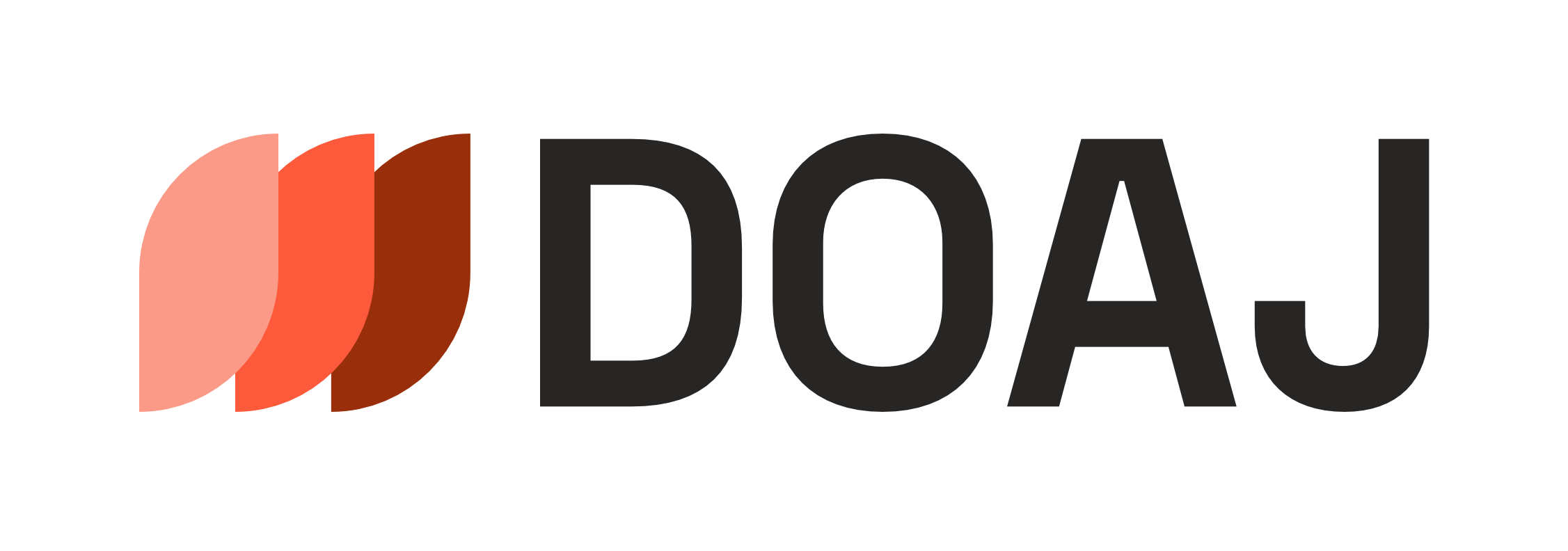Perspectivas académicas del nexo enseñanza-investigación en la formación inicial del profesorado en Portugal
DOI:
https://doi.org/10.5944/educxx1.31518Palabras clave:
formación inicial del profesorado, educación superior, nexo entre enseñanza e investigación, profesores-investigadoresResumen
Con el propósito de que los futuros profesores sean investigadores de su práctica docente y puedan mejorarla, es importante potenciar una fuerte relación entre la enseñanza y la investigación durante su formación. Partiendo de esta idea, se ha desarrollado un estudio que pretende ampliar el debate sobre la conexión docencia-investigación en la enseñanza superior o, como lo denominan algunos autores, nexo docencia-investigación. El presente estudio de investigación responde a las siguientes preguntas: ¿Qué posturas justifican la importancia de la relación docencia-investigación en la formación inicial del profesorado? ¿Cómo es esta relación en la formación inicial del profesorado? ¿Qué dificultades y posibilidades existen para llevar a cabo la enseñanza con la investigación? Metodológicamente, se utilizó un cuestionario, a través de correo electrónico, con tres preguntas abiertas para recopilar las opiniones de los profesores que imparten formación inicial del profesorado. El cuestionario fue sometido a una validación crítica mediante la técnica del "acuerdo del jurado" y fue respondido por 56 profesores de 13 instituciones de enseñanza superior de las 24 que, en Portugal, imparten formación inicial del profesorado. Los profesores fueron informados de que los datos globales y los nombres de las instituciones a las que pertenecen serían anónimos. Las respuestas dadas fueron sometidas a un análisis de contenido apoyado en la tipología de Healey (2005) sobre el nexo enseñanza-investigación: enseñanza dirigida mediante investigación; enseñanza orientada a la investigación; investigación tutelada; enseñanza basada en la investigación. Este análisis permite concluir que, al referirse a la relación docencia-investigación, los profesores presentan conceptos relacionados con las cuatro dimensiones enunciadas por Healey, aunque se favoreció un enfoque orientado a la investigación. Las razones de política institucional y educativa fueron señaladas como las mayores dificultades para lograr la enseñanza con investigación, aunque también existen posibilidades de liderar este cambio. Esta situación abre perspectivas para la formación inicial que prepare a los futuros docentes para prácticas curriculares apoyadas en la investigación. Para ello, es importante invertir en las culturas institucionales y en las condiciones de trabajo de los docentes de la educación superior.
Descargas
Citas
Afdal, H., & Spernes, K. (2018). Designing and redesigning research-based teacher education. Teaching and Teacher Education, 74, 215–228. https://doi.org/10.1016/j.tate.2018.05.011
Agud, I., & Ion, G. (2019). Research-based learning in initial teacher education in Catalonia. CEPS Journal, 9(2), 99–118. https://doi.org/10.26529/cepsj.564
Barnett, R. (2008). Para una transformación de la universidad: Nuevas relaciones entre investigación, saber y docencia. Octaedro.
Bleiklie, I., Enders, J., & Leppori, B. (2015). Organizations as penetrated hierarchies: Environmental pressures and control in professional organizations. Organization Studies, 36(7), 873–896. https://doi.org/10.1177/0170840615571960
Boa, E., Wattanatorna, A., & Tagongb, K. (2018). The development and validation of the Blended Socratic Method of Teaching (BSMT): An instructional model to enhance critical thinking skills of undergraduate business students. Kasetsart Journal of Social Sciences, 39(1), 81–89. https://doi.org/10.1016/j.kjss.2018.01.001
Böttcher-Oschmann, F., Ophoff, J., & Thiel, F. (2021). Preparing teacher training students for evidence-based practice promoting students’ research competencies in research-learning projects. Frontiers in Education, 642107. https://doi.org/10.3389/feduc.2021.642107
Bovill, C., & Felten, P. (2016). Cultivating student-staff partnerships through research and practice. International Journal for Academic Development, 21(1), 1–3. https://doi.org/10.1080/1360144X.2016.1124965
Brew, A. (2010). Imperatives and challenges in integrating teaching and research. Higher Education Research & Development, 29(2), 139–150. https://doi.org/10.1080/07294360903552451
Brew, A., & Saunders, C. (2020). Making sense of research-based learning in teacher education. Teaching and Teacher Education, 87, 102935. https://doi.org/10.1016/j.tate.2019.102935
Cao, Y., Postareff, L., Lindblom-Ylänne, S., & Toom, A. (2021). A survey research on Finnish teacher educators’ research-teaching integration and its relationship with their approaches to teaching. European Journal of Teacher Education. https://doi.org/10.1080/02619768.2021.1900111
Chan Fong Yee, F. (2014). Reflections on teaching and research: Two inseparable components in higher education. Teachers and Teaching, 20(6), 755–763. https://doi.org/10.1080/13540602.2014.885700
Creswell, J.W., & Creswell, J.D. (2018). Research design: Qualitative, quantitative, and mixed methods approaches (5th ed.). SAGE.
Damşa, C. (2018). Research and development tasks in teacher education: Institutional framing and student experiences. In P. Maassen, M. Nerland, & L. Yates (Eds.), Reconfiguring knowledge in higher education (pp. 149–167). Springer. https://doi.org/10.1007/978-3-319-72832-2_9
Elo, S., Kaarianinen, M., Kanste, O., Polkki, R., Utriainen, K., & Kyngas, H. (2014). Qualitative content analysis: A focus on trustworthiness. Sage Open, 4(1). https://doi.org/10.1177/2158244014522633
Elsen, M., Visser-Wijnveen, G., Van Der Rijst, R., & Van Driel, J. (2009). How to strengthen the connection between research and teaching in undergraduate university education. Higher Education Quarterly, 63(1), 64–85. https://doi.org/10.1111/j.1468-2273.2008.00411.x
Ferguson, L. (2021). Evidence-informed teaching and practice-informed research. Zeitschrift für Pädagogische Psychologie, 35(2–3), 199–208. https://doi.org/10.1024/1010-0652/a000310
Flores, M. (2018). Linking teaching and research in initial teacher education: Knowledge mobilisation and research-informed practice. Journal of Education for Teaching, 44(5), 621–636. https://doi.org/10.1080/02607476.2018.1516351
Fung, D. (2017). A connected curriculum for higher education. UCL Press.
Griffiths, R. (2004). Knowledge production and the research-teaching nexus: The case of the built environment disciplines. Studies in Higher Education, 29(6), 709–726. https://doi.org/10.1080/0307507042000287212
Grossman, P., & McDonald, M. (2008). Back to the future: Directions for research in teaching and teacher education. American Educational Research Journal, 45(1), 184–205. https://doi.org/10.3102/0002831207312906
Guilbert, D., Lane, R., & Van Bergen, P. (2016). Understanding student engagement with research: A study of pre-service teachers’ research perceptions, research experience, and motivation. Asia-Pacific Journal of Teacher Education, 44(2), 172–187. https://doi.org/10.1080/1359866X.2015.1070118
Gutman, M. (2021). From teacher to senior teacher educator: Exploring the teaching-research nexus in Israeli Academic Colleges of Education. Journal of Education for Teaching, 47(3), 439–453. https://doi.org/10.1080/02607476.2021.1886570
Haukland, L. (2017). The Bologna process: The democracy–bureaucracy dilemma. Journal of Further and Higher Education, 41(3), 261–272. https://doi.org/10.1080/0309877X.2015.1070403
Healey, M., & Jenkins, A. (2006). Strengthening the teaching-research linkage in undergraduate courses and programs. New Directions for Teaching and Learning, 107, 43–53. https://doi.org/10.1002/tl.244
Healey, M. (2005). Linking research and teaching: Exploring disciplinary spaces and the role of inquiry-based learning. In R. Barnett (Ed.), Reshaping the university: New relationships between research, scholarship and teaching (pp. 67–78). McGraw Hill / Open University Press.
Hedges, H. (2010). Blurring the boundaries: Connecting research, practice and professional learning. Cambridge Journal of Education, 40(3), 299–314. https://doi.org/10.1080/0305764X.2010.502884
Hughes, M. (2005). The mythology of research and teaching relationships in universities. In R. Barnett (Ed.), Reshaping the university: New relationships between research, scholarship and teaching (pp. 67–78). McGraw Hill / Open University Press.
Jenkins, A., & Healey, M. (2005). Institutional strategies to link teaching and research. The Higher Education Academy.
Jenkins, A., Healey, M., & Zetter, R. (2007). Linking teaching and research in disciplines and departments. The Higher Education Academy.
Karagiannis, S. (2009). The conflicts between science research and teaching in higher education: An academic’s perspective. International Journal of Teaching and Learning in Higher Education, 21(1), 75–83. https://bit.ly/3EyxfF4
Katwijk, L., Berry, B., Jansen, E., & Venn, K. (2019). “It’s important, but I’m not going to keep doing it!”: Perceived purposes, learning outcomes, and value of pre-service teacher research among educators and pre-service teachers. Teaching and Teacher Education, 86, 102868. https://doi.org/10.1016/j.tate.2019.06.022
Khan, M. (2017). Achieving an appropriate balance between teaching and research in institutions of higher education: An exploratory study. International Journal of Information and Education Technology, 7(5), 341–349. https://doi.org/10.18178/ijiet.2017.7.5.892
Korthagen, F. (2016). Pedagogy of teacher education. In J. Loughran & M.L. Hamilton (Eds.), International Handbook of Teacher Education (Vol. 1, pp. 311–346). Springer Science.
Leite, C. (2019). Teaching, learning and research – An analysis of the academic and political agenda. In M. H. Pedrosa-de-Jesus & D. M. Watts, (Eds.), Academic growth in higher education: questions and answers (pp. 19-30). Brill Sense.
Leite, C., Fernandes, P., & Figueiredo, C. (2019). National curriculum vs curricular contextualisation: teachers’ perspectives, Educational Studies, 46(3), 259-272, https://doi.org/10.1080/03055698.2019.1570083
Leite, C., Fernandes, P., & Sousa-Pereira F. (2017). Post-Bologna policies for teacher education in Portugal: tensions in building professional identities. Profesorado. Revista de Currículum y Formación del Profesorado, 21(1), 181-201.
La Velle, L., & Flores, M. (2018). Perspectives on evidence-based knowledge for teachers: Acquisition, mobilisation and utilisation. Journal of Education for Teaching, 44(5), 524–538. https://doi.org/10.1080/02607476.2018.1516345
Martin, B. (2017). What’s happening to our universities? Prometheus – Critical Studies in Innovation, 34(1), 7–24. https://doi.org/10.1080/08109028.2016.1222123
McCartney, E., Marwick, H., Hendry, G., & Ferguson, E. (2018). Eliciting student teacher’s views on educational research to support practice in the modern diverse classroom: A workshop approach. Higher Education Pedagogies, 3(1), 342–372. https://doi.org/10.1080/23752696.2018.1498748
Northouse, P. (2016). Leadership: Theory and practice (7th ed.). SAGE.
Nóvoa, A. (2019). Entre a formação e a profissão: Ensaio sobre o modo como nos tornamos professores [Between training and profession: Essay on how we become teachers]. Currículo sem Fronteiras, 19(1), 198–208.
Obwegeser, N., & Papadopoulos, P. (2016). Integrating research and teaching in the IS classroom: Benefits for teachers and students. Journal of Information Systems Education, 27(4), 249–258. https://bit.ly/3hHY80x
Oolbekkink-Marchand, H., Oosterheert, I., Lubberink, L., & Denessen, E. (2020). The position of student teacher practitioner research in teacher education: Teacher educators’ perspectives. Educational Action Research, 30(3), 445-461. https://doi.org/10.1080/09650792.2020.1857811
Perines, H. (2020). Educational research training in teacher training programs: The views of future teachers. International Education Studies, 14(1), 76–85. https://doi.org/10.5539/ies.v14n1p76
Robertson, S. (2009). O processo de Bolonha da Europa torna-se global: Modelo, mercado, mobilidade, força intelectual ou estratégia para construção do Estado? [Europe’s Bologna process goes global: Model, market, mobility, intellectual
strength or strategy for state building?]. Revista Brasileira de Educação, 14(42), 407–422. https://doi.org/10.1590/S1413-24782009000300002
Simons, M., & Elen, J. (2007). The ‘research-teaching nexus’ and ‘education through research’: An exploration of ambivalences. Studies in Higher Education, 32(5), 617–631. https://doi.org/10.1080/03075070701573781
Sousa, R., Lopes, A., & Boyd, P. (2020). Initial teacher education and the relationship with research: Student teachers’ perspectives. Studia Paedagogica, 25(2), 162-179. https://bit.ly/3hBTVvc
Stappenbelt, B. (2013). The effectiveness of the teaching-research nexus in facilitating student learning. Engineering Education, 8(1), 111–121. https://doi.org/10.11120/ened.2013.00002
Stenhouse, L. (1987). La investigación como base de la enseñanza. Morata.
Taylor, J. (2007). The teaching:research nexus: A model for institutional management. Higher Education, 54, 867–884. https://doi.org/10.1007/s10734-006-9029-1
Veiga, A., & Neave, G. (2015). Managing the dynamics of the Bologna reforms: How institutional actors re-construct the policy framework. Education Policy Analysis Archives, 23(59). https://doi.org/10.14507/epaa.v23.1891
Walkington, H. (2015). Students as researchers: Supporting undergraduate research in the disciplines in higher education. The Higher Education Academy. https://bit.ly/3twEabJ
Willcoxson, L., Manning, M., Johnston, N., & Gething, K. (2011). Enhancing the research-teaching nexus: Building teaching-based research from research-based teaching. International Journal of Teaching and Learning in Higher Education, 23(1), 1–10.
Wood, D. (2009). Challenges to strengthening the teaching and research nexus in the first-year undergraduate curriculum. The International Journal of Learning, 15(12), 111–120. https://doi.org/10.18848/1447-9494/CGP/v15i12/46051

Descargas
Publicado
Cómo citar
Número
Sección
Licencia
Derechos de autor 2022 Carlinda Leite, Paulo Marinho, Fátima Sousa-Pereira

Esta obra está bajo una licencia internacional Creative Commons Atribución-NoComercial 4.0.
La revista Educación XX1 se publica bajo licencia Creative Commons Reconocimiento-NoComerciaL 4.0 (CC BY-NC 4.0). Se permite la generación de obras derivadas siempre que no se haga un uso comercial. Tampoco se puede utilizar la obra original con finalidades comerciales.










